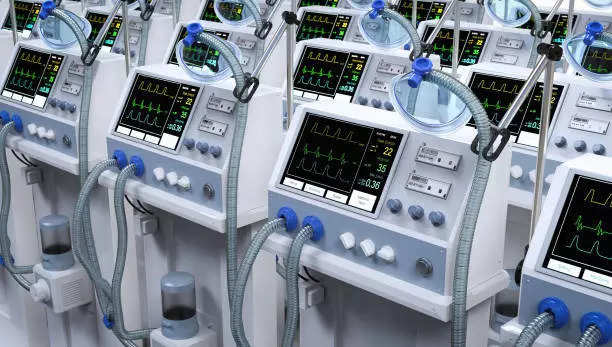[ad_1]

New Delhi: The US President’s announcement of imposing 27 per cent tariffs on medical device imports in response to seeking reciprocity in trade has raised strong concerns among manufacturers in India.
Under the latest trade tariffs announced by the US President, the administration has imposed a ’27 per cent’ tariffs (import duty) on all goods imported from India, meaning medical devices exported from the country will be subject to the same duty with immediate effect.
Officials, including the US President have called the move as a way of seeking reciprocity in trade with various countries and prioritising domestically manufactured goods over imports.
However, the announcement has not been translated well in the global industry, including in India, where stakeholders have raised strong reservations over the negative impact on trade, costs, and access to one of the most lucrative market.
“The US administration’s decision to impose reciprocal tariffs does not reflect informed policymaking… and may intended to protect domestic industries could inadvertently stifle the spirit of free and fair trade that benefits both nations,” said, Pavan Choudary, Chairman, Medical Technology Association of India (MTaI).
Besides this another industry voice Rajiv Nath, Forum Coordinator, AiMeD said, “the imposition of a 27 per cent tariffs on Indian medical device exports to the US pose a significant challenge to the sector’s growth and a balanced approach to tariffs is an essential requirement to maintain India as a competitive global player.”
Over the county wise differentiation of tariffs Himanshu Baid , Managing Director Polymedicure said, “while India may seemingly gain a marginal price advantage over China (7 per cent) in certain low-risk, high-volume consumables, the real impact may not be significant if our prices were higher than 15 per cent and the impact has to be further studied compared to other competing nations.”
As per Nath these will definitely provide protection to US based manufacturers to the medical device industry there and give them an overnight boost to maximise capacity utilisation and expansion for capturing a higher market share in their domestic market .
Nath indicated that, for products in low risk , low priced high volume consumables and disposables where manufacturing had been moved from US and Indian players have a natural competitive advantage may see reverse investments into US.
On the contrary, Choudary said, “these protectionist measures often do more harm than good, and the burden will ultimately fall on consumers and patients in both countries.”
Before this announcement US devices from India were not subject to any tariffs while at present exports from the country attract a basic customs duty (tariffs) of 0-7.5 per cent.
Currently India has a high-import dependency in the medical devices sector and around 80-85 percent of total device requirement is met through Imports where US-based companies have a seizable share.
According to the Exports Promotion Council of Medical Devices, in FY 2023-24, India’s exported $714.38 million (around ₹614 crore) worth of medical devices to the US, while imports from the US to India were more than double at $1,519.94 million (around ₹1300 crore).
However, the factsheet issued from the White House over the President’s announcement claims, “India imposes their own uniquely burdensome and duplicative testing and certification requirements in medical devices that make it difficult or costly for American companies to sell their products in India.”
“If these barriers were removed, it is estimated that US exports would increase by at least $5.3 billion annually,” the document reads.
Considering that sectors like pharma, semiconductors have been exempted, industry stakeholders have stressed to support bilateral negotiations for a balanced approach to tariffs and instead of escalating trade restrictions, both countries should move to a more strategic, non protectionist and cooperative approach.
Meanwhile, in a written reply to the Lok Sabha, at the ongoing Budget session, Piyush Goyal, Minister of Commerce and Industry has stated, “with the changing trade scenario, India is moving towards having free trade agreements wherein customs tariffs and non-tariff barriers are reduced or eliminated on substantial trade.”
[ad_2]
Source link



